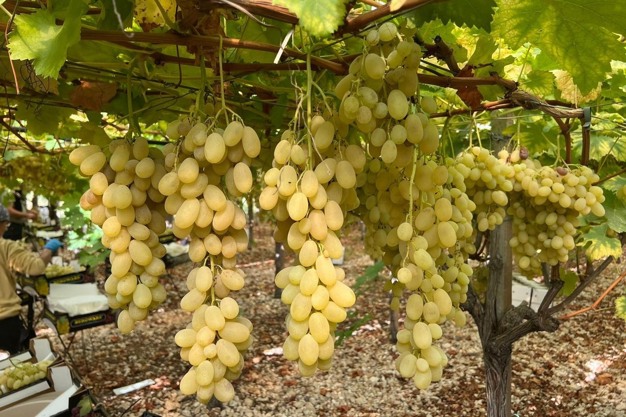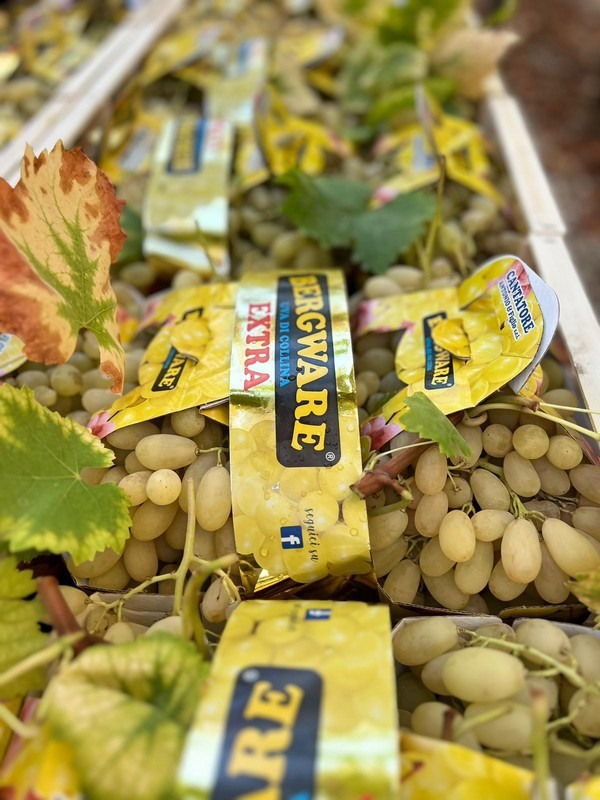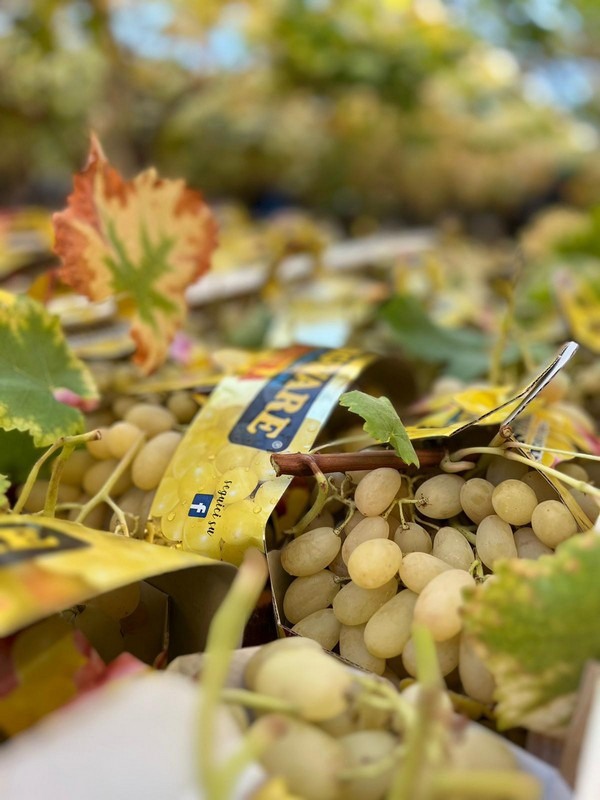The Apulian entrepreneur Antonio Cantatore, owner of around 60 hectares of table grapes, sums up the recent season of the well-known white seeded variety Pizzutella, which is traditional in Apulia and which seems to have done well both in Italy and in some European countries. The company dedicates 12 hectares to this native cultivar, in addition to the areas of other local growers.
|
|
|
"We finished a month earlier than usual. We have no more bunches, either in the fields or in units. It should be pointed out that the season also started earlier than expected. On the production front, plants responded well despite the fact that it is a low-yielding variety, with quantities of around 15 kg/vine."
The Pizzutella variety boasts straw-yellow berries, and is recognisable by its elongated, conical, medium-large bunches and a Brix level exceeding 20°.

"The consumption of Pizzutella grapes is constant in Italy, despite the fact that the variety contains seeds. It is purchased by those who are fond of it and, therefore, by those who are used to it and know its organoleptic qualities. We have also recorded satisfying requests from abroad, especially over the last two years. This past season, our export volumes of Pizzutella increased by 15-20% in Germany and Belgium. For example, in the German market, those who buy it are mainly the Turkish community, probably because, being very sugary, it reminds them of sultanas."
Some physiological defects and the need for specific cultivation operations, such as millerandage (i.e. the manual removal of underdeveloped berries), which reduces yields and increases costs, makes local producers hesitate. "This is one of the reasons that has led many farmers to abandoning this variety in recent years, although it remains profitable. It is well placed in a niche market. Rather than sales, some issues and aspects more related to production need to be resolved, to standardise the quality level (e.g. colour) of the bunches sent to customers."
 For more information:
For more information:
Cantatore Antonio & Figlio Srl
(+39) 340 9369214 - 368 648323
[email protected]


